Related Research Articles
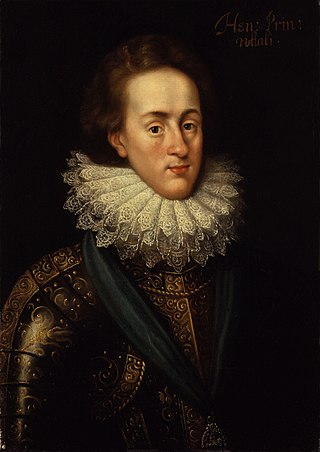
Henry Frederick, Prince of Wales,, was the eldest son and heir apparent of James VI and I, King of England and Scotland; and his wife Anne of Denmark. His name derives from his grandfathers: Henry Stuart, Lord Darnley; and Frederick II of Denmark. Prince Henry was widely seen as a bright and promising heir to his father's thrones. However, at the age of 18, he predeceased his father, dying of typhoid fever. His younger brother Charles succeeded him as heir apparent to the English, Irish, and Scottish thrones.
This article contains information about the literary events and publications of 1625.
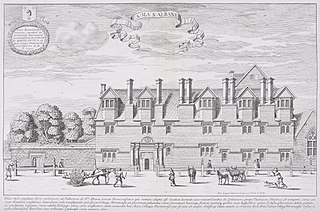
St Alban Hall, sometimes known as St Alban's Hall or Stubbins, was one of the medieval halls of the University of Oxford, and one of the longest-surviving. It was established in the 13th century, acquired by neighbouring Merton College in the 16th century but operated separately until the institutions merged in the late 19th century. The site in Merton Street, Oxford, is now occupied by Merton's Edwardian St Alban's Quad.

Colonel Thomas Brooke Jr. of Brookefield was President of the Council in Maryland and acting 13th Proprietary Governor of the Province of Maryland. He was the son of Major Thomas Brooke Sr. and Esquire (1632–1676) and his second wife Eleanor Hatton (1642–1725) who later remarried Col. Henry Darnall (1645-1711). He was grandson of the Reverend Robert_Brooke_Sr. who also held the office briefly during the Cromwellian period in 1652.
Events from the year 1686 in England.
Events from the 1610s in England.
John Vaughan, 1st Earl of Carbery was a Welsh courtier and politician who sat in the House of Commons in 1601 and from 1621 to 1622. He served Robert Devereux, 2nd Earl of Essex, and later Prince Charles, heir to the throne of King James I. However, his career ended when the Prince acceded to the throne in 1625, and he later estimated that serving the Prince had cost him £20,000, which went unrecompensed.
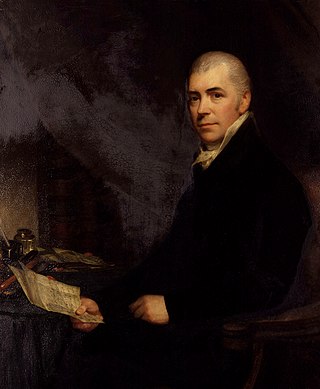
Sir Henry Halford, 1st Baronet, GCH, born Henry Vaughan, was president of the Royal College of Physicians for 24 years. As the royal and society physician, he was physician extraordinary to King George III from 1793 to 1820, then as physician in ordinary to his three successors – George IV, William IV and the young Victoria. He also served other members of the royal family until his death.
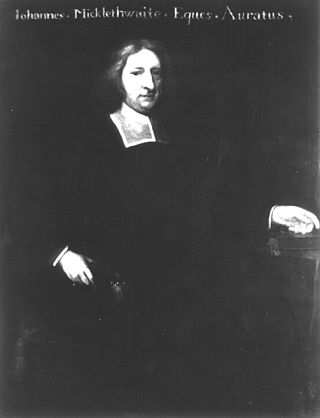
Sir John Micklethwaite M.D. (1612–1682) was an English physician, who attended Charles II. He was President of the Royal College of Physicians.
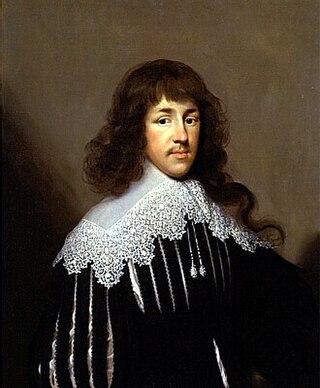
Sir Francis Godolphin MP, of Godolphin in Cornwall, was an English nobleman, landowner, politician, and Member of Parliament. His chief claim to fame is that he was the dedicatee of Hobbes' Leviathan.

Isaac Bargrave was an English royalist churchman, Dean of Canterbury from 1625 to 1643.
Sir Adam Newton, 1st Baronet was a Scottish scholar, royal tutor, dean of Durham and baronet.
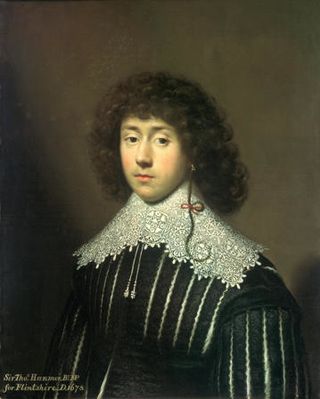
Sir Thomas Hanmer, 2nd Baronet (1612–1678) was an English politician who sat in the House of Commons in 1640 and from 1669 to 1678. He was a Royalist during the English Civil War and raised troops for Charles I. In his personal life, he was a keen horticulturist. He is not to be confused with Sir Thomas Hanmer, 2nd Baronet (1747–1828) of the second creation, nor with his grandson, Sir Thomas Hanmer, 4th Baronet.
Henry Atkins (1558–1635) was an English physician.
Sir Henry Fanshawe (1569–1616) was a Member of the English Parliament who held the office of Remembrancer of the Exchequer.
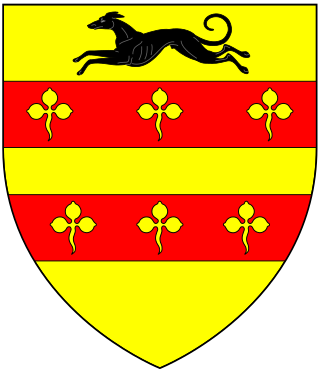
Sir Thomas Palmer, 1st Baronet (1540–1626), 'the Travailer,’ was an English knight and politician.
Sir John Finet or Finett (1571–1641) was the English Master of the Ceremonies in the Stuart court.
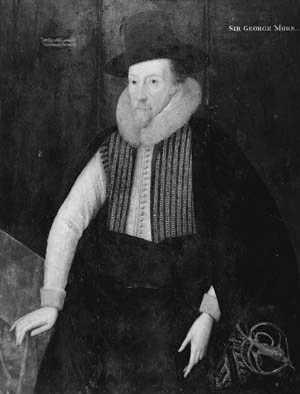
Sir George More was an English courtier and politician who sat in the House of Commons at various times between 1584 and 1625.
Thomas Coxe (1615–1685) was an English physician. He studied at Emmanuel College, Cambridge, graduating with a BA in 1635 and an MA in 1638. He was among the initial fellows of the Royal Society, but ran into money difficulties in old age.
References
![]() This article incorporates text from a publication now in the public domain : Moore, Norman (1895). "Palmer, Richard (d.1625)". In Lee, Sidney (ed.). Dictionary of National Biography . Vol. 43. London: Smith, Elder & Co.
This article incorporates text from a publication now in the public domain : Moore, Norman (1895). "Palmer, Richard (d.1625)". In Lee, Sidney (ed.). Dictionary of National Biography . Vol. 43. London: Smith, Elder & Co.